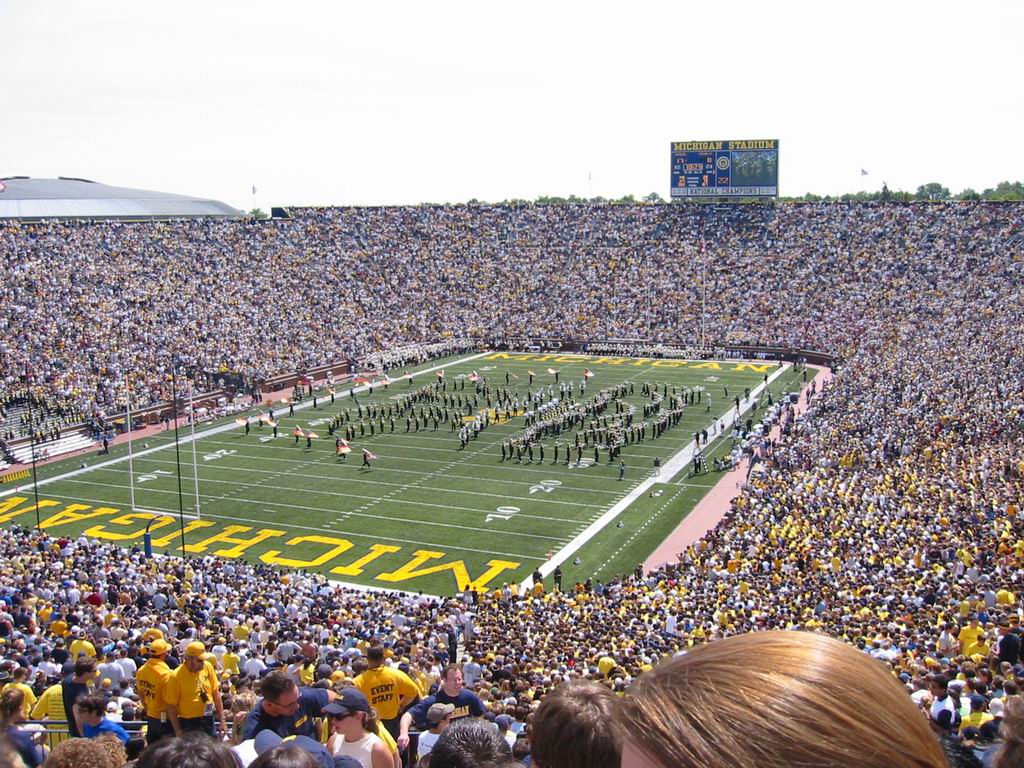Beer & Circus, Indeed…
Posted by rtmsf on September 30th, 2007Note: if you’re not predisposed to a healthy dose of introspection and self-immolation with respect to college athletics, please skip this missive. We hate ourselves and everything we stand for after writing this.
Consider the following quotation:
If you were giving the [athletic] scholarship to an intellectually brilliant kid who happens to play a sport, that’s fine. But they give it to a functional illiterate who can’t read a cereal box, and then make him spend 50 hours a week on physical skills. That’s not opportunity. If you want to give financial help to minorities, go find the ones who are at the library after school. (emphasis added)

These words were uttered last week in the New York Times by Rutgers literature professor William C. Dowling, who now finds himself embroiled in a brouhaha over the intent and implied racism inherent in his statement. Both the Rutgers university president and athletic director have condemned Dowling’s remarks, and Dowling has shot back at both by accusing them of running an athletic program that openly exploits minority athletes for the university’s gain.
Were it that Dowling was just another old white guy who is completely out of touch with racial politics as it relates to sports in the 21st Century, we might summarily dismiss understand his statement here, but that’s not the case. In fact, Dowling was arrested in the sixties during the freedom rides in the South and his statement above was elicited from a question specifically about minority activity in college athletics (Do big-time college sports provide opportunities to minorities?) – this guy is no racist. For better or worse, if you read his online c.v., you easily find that this guy is about as socially liberal and/or progressive as they come.

Rutgers prof William C. Dowling
But what his statement does is once again expose the dirty little secret of big-time college athletics, a secret that nobody outside of a few academics such as Dowling, Murray Sperber, Andrew Zimbalist and others seem willing to broach. You’ll certainly never hear Dick Vitale or Brent Musberger on fall or winter Saturdays remark as to why Michigan football players average an SAT score of 834 vs. 1271 for the student body or why Duke basketball players average an 887 vs. 1392. Instead, you’re just as likely to hear them refer to players at these schools as quintessential student-athletes who do things “the right way.” After all, exposing the academic hypocrisy at elite institutions such as Michigan and Duke calls into question the integrity of the whole house of cards, and potentially weakens the cash cow on which Vitale, Musberger and others depend.
This is a complex and difficult issue, and we don’t purport to know all the right questions to ask, much less the answers. But to paraphrase Lenny Kravitz, does anybody out there even care? Sure, the standard college fan’s MO is that our guys are solid, upstanding citizens who go to class and caress kittens in their spare time, while your guys are animalistic thugs who don’t even know where classes are held and spend their evenings involved in gunplay and misogyny that would make OJ (Simpson) proud. But it’s not simply a matter of folks caught unawares – what’s quietly whispered among other students and faculty is that the athletes as a general rule are treated differently than the rest of the student body. Class attendance usually isn’t optional, but certain departments and professors are considered amenable to the greater good of the university athletic department, and as such, athletes find themselves in Communications, PE and Sociology majors a disproportionate amount of the time. This doesn’t even contemplate the seemingly endless allegations of university-cum-enabler academic fraud, from Florida State to Tennessee to Minnesota to Georgia and many, many others.

Nobody Here is Worried about Beer & Circus
And yet… despite our knowledge of this institutionalized hypocrisy by the universities, and despite the internal dyspepsia we experience when watching various players in interviews struggle with the English language, and despite the intellectual and moral disconnect of passing judgment on other schools’ troubled players while minimizing and mitigating our own, we still watch the games. Michigan puts 110,000 fans into the Big House every fall weekend, and millions more watch from home. People like us write blogs devoted to the whimsy of whether Florida will win the SEC East or if Keven Durant will go pro. Yet it’s telling that we’re still waiting to hear where yet another incident of beer & circus mentality at a university has led to decreased fan interest to the point where they turn their backs on the athletic program. Incredibly, if anything, it appears that severe NCAA sanctions embolden fans’ ire toward the dime-droppers and the NCAA rather than those students, faculty and administrators perpetrating the crimes in the first place.
The simple truth is that while all of us love to announce to the world that this stuff bothers us, the truth is that as college sports fans, we just don’t care. Or put more specifically, we don’t care enough to demand change, and we say this to be honest rather than flippant. Like many things in life, such as our gender’s insistence that we value other characteristics in women besides attractiveness, the reality is that all of the other stuff is secondary to the girl’s hotness. Sure, we like it when she’s smart, caring, personable, etc., just as we hope our team’s players will behave responsibly on and off the field/court. But what we really want is to win games (and get with the hottie) so that we can exult in the reflected glory of our team’s success, and whether we do so in an ambiguously irresponsible or immoral manner is less important than the results measured in Ws and Ls. So while we completely agree with Dowling’s point that a better way to assist minorities would be to find true student-athletes who excel in both the classroom and the gym, the harsh reality is that such a priority shift would likely turn the teams that we love into Stanford football (1-11 last season) or Dartmouth basketball (9-18), and what alumnus living outside of the ivory tower wants that?
Update: Dr. Sperber referred us to an article he recently wrote for the Chronicle of Higher Education called “On Being a Fan.” This article crystallizes the internal conflict of “doublethink” that we feel when we spend our time watching and rooting for college teams while recognizing the hypocrisy of the system. Sperber states this much better than we can:
Such critics have always had logic on their side. But most have overlooked the inescapable reality that fan attitudes on college sports are beyond reason, even irrational, and that frequently they stem from childhood experiences and family bonding: Many of my students at Indiana said that their earliest memories included sitting on the couch with their family in front of the TV and rooting for the Indiana University Hoosiers. For many other fans, the attachment to a team connects to positive feelings about their college days — indeed, that is the basis of my own loyalty. To overturn such deep emotions with logic and reason is almost impossible.









































